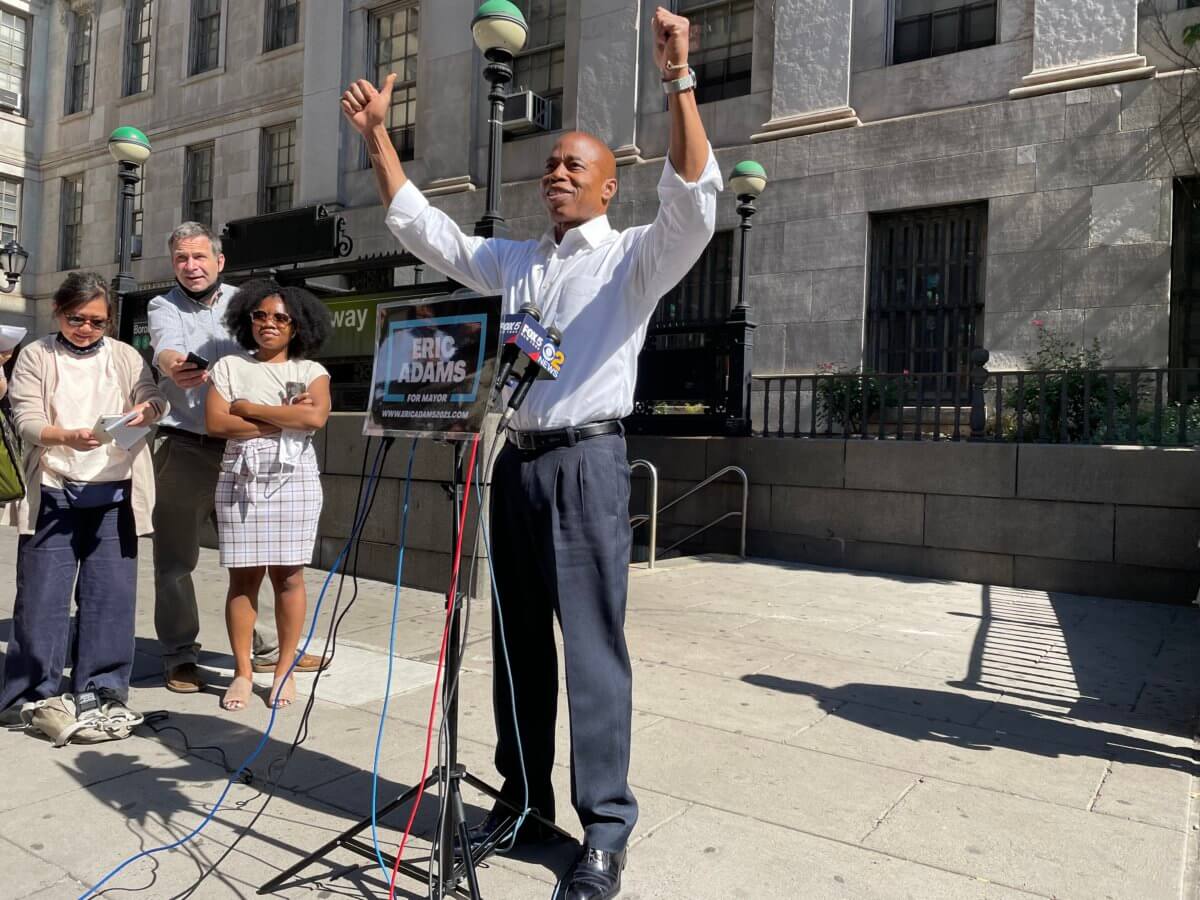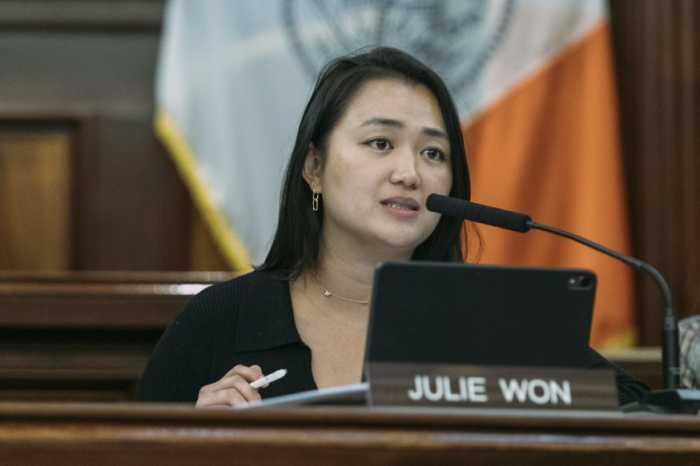New Yorkers are optimistic about the next four years with Eric Adams as mayor, but a record number say crime is a very serious problem, according to a Quinnipiac University poll of registered voters in New York City released today.
By a wide margin, (64 – 27 percent), voters say they are optimistic about the next four years with Adams as mayor, with Democrats say, 74 – 19 percent and independents say 60 – 31 percent they are optimistic while half of Republicans (50 percent) are pessimistic and 46 percent are optimistic.
Adams also received positive scores when voters are asked about his handling of the response to the coronavirus: 61 percent approve while 28 percent disapprove; relations between the police and the community: 57 percent approve while 29 percent disapprove; crime: 49 percent approve while 35 percent disapprove; and public schools: 44 percent approve while 31 percent disapprove.
Sixty-eight percent of those polled said Adams has strong leadership qualities, while 23 percent say no; and 54 percent believes Adams as honest and trustworthy while 29 percent said no.
“Faced with several crises in his first few weeks on the job, Eric Adams is being put to the test quickly. But the honeymoon phase often afforded to newly elected officials is fueling optimism about the next four years in New York City, helped by views among all groups that Mayor Adams has strong leadership qualities,” said Quinnipiac University Polling Analyst Mary Snow.
Regarding crime roughly three-quarters of New York City voters (74 percent) think crime is a very serious problem, which is a record high since the Quinnipiac University Poll started asking this question in 1999. Until now, the highest number of voters thinking crime was a very serious problem was 50 percent back in January 2016.
Crime ranks as the most urgent issue facing New York City with 46 percent, making it the top issue followed by affordable housing (14 percent) and homelessness (9 percent).
Roughly 4 out of 10 voters (43 percent) say New York City is less safe compared to other big cities, 36 percent say about as safe, and 16 percent say more safe. The 43 percent of voters saying less safe is the highest level it’s been since the question was first asked by Quinnipiac in 2003, with a previous high of 16 percent.
Voters say, 65 – 33 percent, that they personally worry about being the victim of a crime, the highest level of worry since Quinnipiac first asked this question in April 1999 when it was 57 – 42 percent.
“In the wake of two NYPD officers being shot and killed on duty among multiple high profile violent crimes, the mandate and urgency in New York City is clear: reducing crime is the number one issue in New York City,” said Snow.
Also of interest, nearly two-thirds (64 percent) of New Yorkers are either somewhat dissatisfied (28 percent) or very dissatisfied (36 percent) with the way things are going in New York City today, the highest number of people very dissatisfied since July 2003. One-third of voters (33 percent) are either very satisfied (5 percent) or somewhat satisfied (28 percent).
Still, a majority of voters (59 percent) say they would rather remain in New York City while 38 percent say they would like to move out.
The poll surveyed 1,343 New York City from February 3-7 with a margin of error of +/- 2.7 percentage points.








